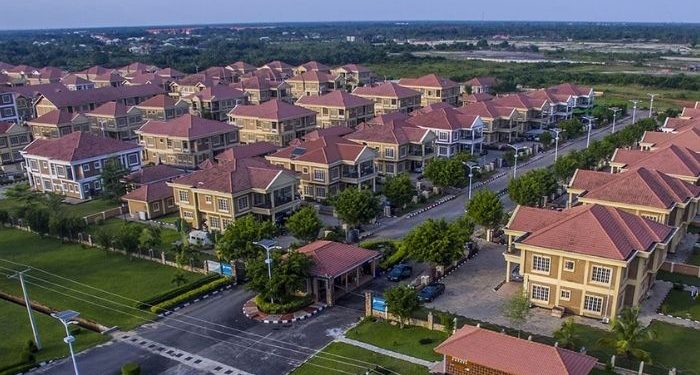The Ebonyi State Government has announced a sweeping ban on house and land agents, effective January 1, 2026, in a move Governor Francis Ogbonna Nwifuru described as a direct response to years of exploitation in Nigeria’s property sector.
News Point Nigeria reports that the governor, speaking over the weekend, said the ban was aimed at stopping agents from charging outrageous fees, sometimes as high as ₦500,000 for properties they neither owned nor controlled.
“I don’t want to see or hear anything about house or land agents in Ebonyi State from 2026,” Governor Nwifuru declared.
“This exploitation must stop. No agent should collect any money from anyone seeking accommodation again.”
The new policy, he explained, would allow tenants and property owners to deal directly, thereby reducing rents, increasing transparency, and easing access to affordable housing.
Ebonyi’s announcement aligns with ongoing efforts in other states, including Lagos and Plateau, to regulate or curtail the role of middlemen in the property market.
Over the years, Nigerians have consistently lamented how agents inflate housing costs, frustrate tenants, and exploit desperate house-seekers.
According to a govt official who spoke to News point Nigeria on condition of anonymity, the Ebonyi State House of Assembly is also considering new legislation to back the governor’s directive and strengthen consumer protection in housing transactions.
For many Nigerians, the decision is long overdue.
A tenant, Basil Okafor, told this newspaper he had “suffered in the hands of agents” who often collected ₦10,000 for inspection fees, regardless of whether the property suited the client.
“Some of them even increase rents not authorised by landlords just so they can pocket the difference. It is unacceptable,” he lamented, urging other states to adopt Ebonyi’s model.
Barrister Idongesit Williams, a property lawyer, also welcomed the move but called for balance.
“I must confess that not all agents are bad. But what some of them are doing is unfair. For instance, a landlord might set rent at ₦1 million, but agents hike it to ₦1.5 million.
“This is rampant in Abuja, Lagos, and parts of the South-East and South-South. It’s a very bad development,” he said.
However, some stakeholders are urging caution.
A trader, Bawa Kaka, argued that agents still play a vital role in bridging the gap between landlords and tenants, especially when landlords are inaccessible.
“These guys are vital in the property sector whether we like it or not. Agreed there are some bad eggs, but not all.
“They should be integrated legally to separate the good from the bad. Otherwise, many could lose their livelihoods and resort to social vices, which is dangerous for the country,” he warned.
The debate reflects a broader dilemma in Nigeria’s housing sector: while agents are often blamed for inflating rents and exploiting tenants, they also provide critical services in a market plagued by limited transparency and poor regulation.
Governor Nwifuru insists Ebonyi’s policy will restore fairness and reduce hardship for ordinary citizens. But as the ban looms, questions remain over how the government will regulate direct landlord-tenant transactions and reintegrate agents who depend on the trade for survival.
For now, the state’s decisive step has intensified national conversations about how best to reform Nigeria’s property sector, one of the most unregulated but vital areas of daily life.









